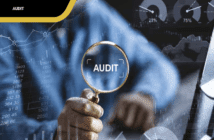CPA Felix Nasubo
How We Can Create Opportunities for Accountants Through Partnership With OAG
The Office of Auditor General should partner with ICPAK to establish a working framework to engage the services of professional accountants in private practice to offer audit services to public schools funded by the government. This will bridge the gap occasioned by limited manpower due to understaffing in the office of the auditor general and create job opportunities for young and upcoming auditors in the private practice. Young practitioners with small upcoming firms will shall an opportunity to grab these chances and grow professionally in skills development.
Auditing of national government entities is a mandate of the Office of the Auditor General as provided for under Article 229 of the constitution which establishes the office of the Auditor General and gives it powers to audit all public entities and requires it to give a report to parliament, which within three months after receiving an audit report, parliament shall debate and consider the report and take appropriate action. Sub-Article 4 requires that, ‘within six months after the end of each financial year, the Auditor-General shall audit and report, in respect of that financial year, on— (b) the accounts of all funds and authorities of the national and county governments; (5) The Auditor-General may audit and report on the accounts of any entity that is funded from public funds; (6) An audit report shall confirm whether or not public money has been applied lawfully and in an effective way. In adherence to these provisions of the law, the office of the Auditor General has a duty to; (a) review and evaluate budgetary performance, financial management, transparency and accountability mechanisms and processes in the public schools (b) to give reasonable assurance on the state of risk management, control and governance within the organization; and (c) review the effectiveness of the financial and non-financial performance management systems of the entities.
Public schools are national government entities that are funded by the exchequer to support education system in the country through free primary and secondary school education. The OAG therefore has a duty to ensure prudent utilization of the funds allocated towards this program and that there’s value for money in the education sector. The OAG lacks adequate manpower to audit all government entities both at national and county level and has been outsourcing the services of external audit practitioners to audit these entities.
Since the inception of free primary education in Kenya by the NARC government in 2003, the ministry of education has received huge funding from the exchequer over the years. The lion share of this money has been funding government capitation in the public schools. Over the years, this budget has been increased tremendously as the number of learners triple. When the jubilee government came to power in the year 2013, the government rolled out free secondary schools education in day schools and subsidized secondary education in boarding schools with a government capitation of over half of the fees. Education sector in one of Kenya’s biggest sectors funded by the government. In the 2023/2024 budget, over Kenya shillings 200Billion was allocated to fund free primary and secondary schools’ education. With this kind of investment by the government, there is need for proper financial management by the school administrators. Over the years, the public has been kept in the dark over the amount of money sent to each school and the expenditure. There has been public outcry in the manner in which some schools have spent the money received from the exchequer. In some instances, parents have complained of financial mismanagement with a good number of audit reports indicating that books of accounts are not properly kept in some schools. Such circumstances normally leave room for manipulation by unscrupulous persons who have access to school funds and therefore there is need to find out ways of ensuring efficient and effective financial management in public schools.
Due to limited manpower experienced, it’s in the public interest that the office Auditor General partners with the Institute of Certified Public Accountant (ICPAK) and engage the qualified accountants in private practice to undertake the audit services to this public schools. The office of auditor general has had challenges in auditing over 3000 public schools funded by the government. This has led to embezzlement of public funds by rogue public officers entrusted in safeguarding government resources. For instance, in the recent years an audit conducted at the ministry of education revealed a scandal where public officers created a non-existent school in the system and sent money to fictitious bank accounts which was later withdrawn for private use. This is a trend that can be avoided if the government engaged accounts in undertaking a physical audit to these institutions. The school accountants are not independent because they are solely employed at the whims of the school administrators. In some cases, these bursars have been used or colluded with them to swindle money sent to these schools by the government.
In addition, the government through the public service commission should employ qualified accountants who are members of ICPAK to offer accounting services to these schools to ensure prudent financial management in conformity generally acceptable accounting principles. More auditors should also be engaged to much the needs of these institutions who will routinely audit the work of these bursars and accountants employed to examine and review their books of accounts and financial transactions performed for transparency and accountability.
Email- [email protected]




